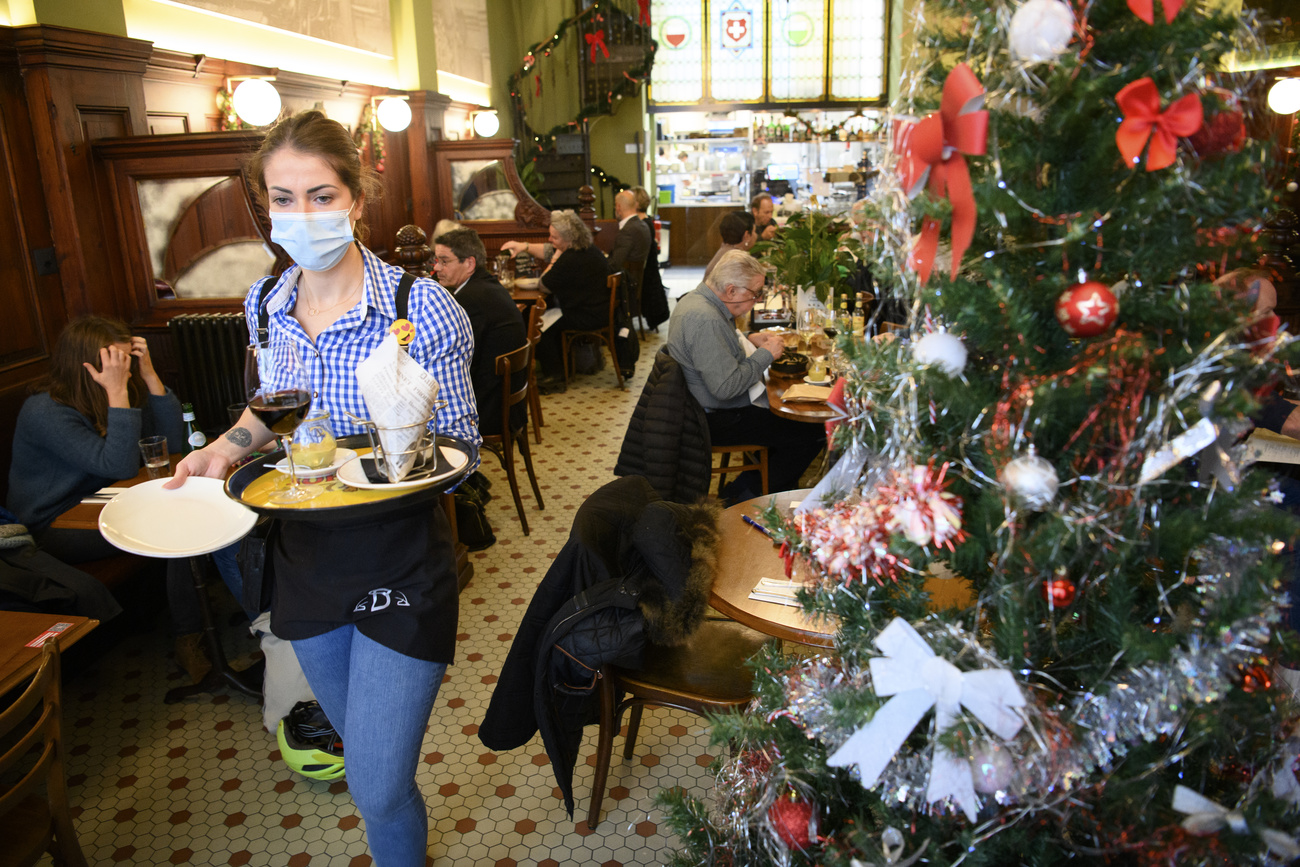
Covid-19: Switzerland tightens restrictions for the unvaccinated

Switzerland will allow only vaccinated people, or those who have recently recovered from a Covid-19 infection, access to indoor public areas, such as restaurants, bars, cultural and sports facilities.
The new restrictions on public gatherings will apply from Monday, December 20, in a bid to curb rising infections and ease the burden on hospitals. The measures will stay in place initially until January 24 next year.
Interior Minister Alain Berset presented the new rules on Friday, which also stated that everyone must provide a negative Covid-19 test in areas where masks cannot be worn, and seating cannot be provided. Only people who have been vaccinated or had a booster jab within the last four months, or are aged under 16, are exempt from this testing requirement.
“The new rule reduces the risk of unimmunised people becoming infected as they are also more likely to pass on the virus and become seriously ill,” read a government statementExternal link.
Switzerland recorded 9,941 new infections on Friday with 1,627 hospitalisations and 294 patients in intensive care. This last figure is the most concerning for the government, which fears that hospital intensive care units may be over-run as the new Omicron variant spreads.
Hospitals are also recommended to postpone non-urgent medical procedures.
Home office order
From Monday, the government will insist that people work from home unless it is unavoidable to go to the workplace. Schools will remain open, but it will be compulsory for secondary school pupils to wear masks.
A maximum of 30 people aged over 16 can attend indoor private meetings – reduced to ten people if the gathering includes non-vaccinated people who have not recently recovered from an infection. Outdoor gatherings are restricted to 300 people.
The government said it will cover the costs for tests for Covid certificate purposes and for people displaying symptoms of coronavirus infection.
Entry restrictions have been slightly eased for travellers entering Switzerland. Visitors can now choose between a quick test within 24 hours of arrival or a PCR test within 72 hours. From December 20, people who are either vaccinated or recently recovered from infection no longer have to take another test within four to seven days of entering the country.
Switzerland has already ordered seven million extra vaccine doses from Moderna and Pfizer/BioNTech for early next year and has resolved to double this number so that 34 million doses will be available by the end of 2022.
Just over two-thirds of the population is fully vaccinated, while 16.3% have so far received a booster jab.

More
Coronavirus: the situation in Switzerland

In compliance with the JTI standards
More: SWI swissinfo.ch certified by the Journalism Trust Initiative






























You can find an overview of ongoing debates with our journalists here . Please join us!
If you want to start a conversation about a topic raised in this article or want to report factual errors, email us at english@swissinfo.ch.